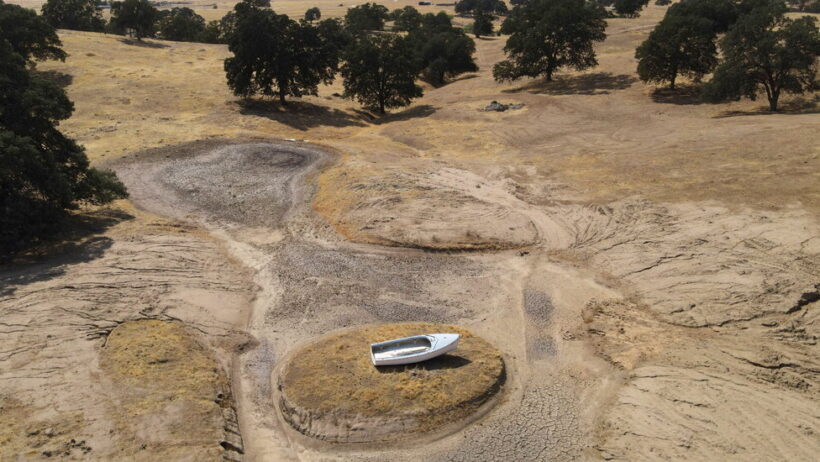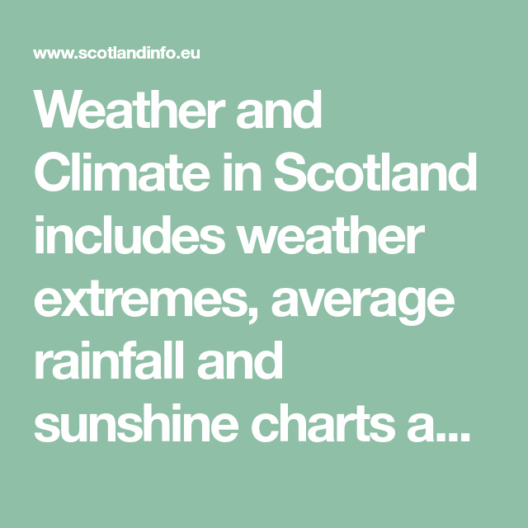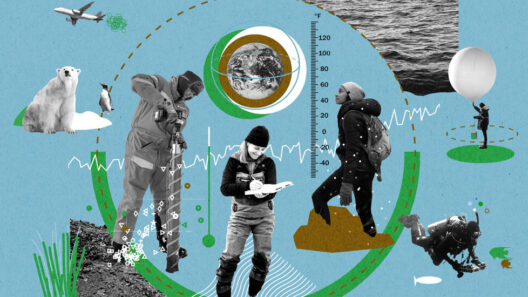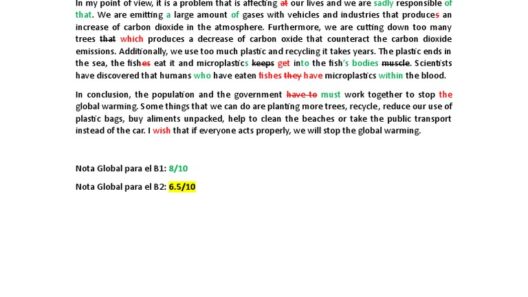Global warming, a term that has gained significant traction in public discourse, is a manifestation of human-induced climate change, characterized by an increase in Earth’s average surface temperature due to rising levels of greenhouse gases. Many individuals now ponder whether we are witnessing the real-time effects of this phenomenon. The answer to that pressing inquiry is a resounding yes. From erratic weather patterns to rising sea levels, the evidence is readily apparent.
One of the most conspicuous manifestations of global warming is the alarming increase in temperature extremes. Our planet is undergoing an unprecedented transformation, and a myriad of regions are experiencing scorching heatwaves and unseasonably warm winters. For instance, cities that previously enjoyed temperate climates are now struggling with heat indexes that soar to dangerous levels. The National Oceanic and Atmospheric Administration (NOAA) reported that the past decade has witnessed the hottest years on record. Every increment of warming increases the frequency and intensity of extreme heat events.
In addition to rising temperatures, we are also witnessing more frequent and severe weather events. Hurricanes, for instance, are becoming more intense due to the warming oceans. When sea surface temperatures rise, they provide an abundant source of heat energy for storms, resulting in hurricanes that are not only stronger but also capable of producing copious rainfall. Flooding has become a ubiquitous threat, and infrastructure in coastal cities is constantly being challenged by rising sea levels and increased storm surges. Such phenomena are not merely theoretical forecasts; they are occurring with alarming frequency.
Moreover, the consequences of global warming are not merely geographical but also ecological. The delicate balance of ecosystems is being disrupted as species struggle to adapt to rapidly changing conditions. Coral reefs, often deemed the rainforests of the ocean due to their incredible biodiversity, are disappearing at an unprecedented rate. Ocean temperatures have risen significantly, causing mass bleaching events that decimate coral populations. The ramifications of these changes are manifold, affecting marine biodiversity and the livelihoods of those who depend on fishing and tourism.
The impact of global warming extends beyond natural ecosystems into human society, influencing agriculture and food security. Shifts in precipitation patterns can engender droughts in some regions while inducing floods in others. Crops that once thrived in established climates are increasingly facing existential threats. These shifts threaten the agricultural productivity that feeds billions around the globe. The specter of famine looms larger in vulnerable regions, where populations are ill-equipped to cope with the deteriorating conditions.
Wildfires represent another dramatic consequence of elevated temperatures. As dried vegetation becomes more prevalent in hotter, dryer climates, the likelihood of wildfires surges. Regions that once experienced mild fire seasons are now facing the prospect of conflagrations that extend for months. These fires not only symbolize the destructive force of climate change but also contribute further to atmospheric carbon, exacerbating the problem in a vicious cycle.
Furthermore, global warming is creating a host of social and economic ramifications. Vulnerable populations are disproportionately affected, as they often lack the resources to adapt to changing environmental conditions. Climate refugees are becoming a reality, as individuals are forced to flee their homes due to sea-level rise or extreme weather. This mass displacement incurs not just humanitarian challenges but also geopolitical tensions as nations grapple with the influx of climate migrants.
In addressing the broader implications of climate change, it’s crucial to consider the psychological effects on society. The phenomenon often breeds a sense of anxiety or despair, termed eco-anxiety. Many individuals feel helpless in the face of overwhelming scientific consensus and stark predictions. This emotional toll is significant, and it fosters a culture of despair rather than action, potentially stymying the critical collective efforts needed to combat climate change.
Discussion surrounding global warming frequently invokes the concept of responsibility. Industrialized countries with high per capita emissions hold a significant portion of the blame for current conditions. However, even within their borders, wealth disparities complicate the responsibility narrative. Lower-income communities often bear the brunt of environmental degradation, having less resilience and fewer resources to mitigate risks related to climate change. Hence, it becomes imperative for those with greater means to acknowledge their culpability and invest in sustainable practices that can alleviate the burden on vulnerable populations.
Beyond individual responsibility, systemic change is quintessential in addressing the climate crisis. Governments and corporations must collaboratively pivot towards renewable energy sources, sustainable agriculture, and robust public transportation systems to curtail greenhouse gas emissions comprehensively. Investments in technology and research that advance climate resilience are essential, signaling a modern, responsible approach to our environmental challenges.
Ultimately, as we observe the palpable effects of global warming occurring around us, it becomes evident that we are at a critical juncture. The urgency for action cannot be overstated; while climate change is already imposing dire consequences, it is also an opportunity for transformation. Collective awareness and determination are necessary to chart a sustainable course. Scientists, policymakers, and community members must unite to advocate for systemic changes that prioritize the health of our planet.
The deleterious effects of global warming are not a distant concern of the future but an undeniable reality of our present. As society grapples with these challenges, it is essential to embrace a proactive, informed approach to environmental stewardship that recognizes our shared responsibility to the planet and to each other. Through concerted efforts, it is possible to mitigate the impacts of climate change and work towards a sustainable future.








